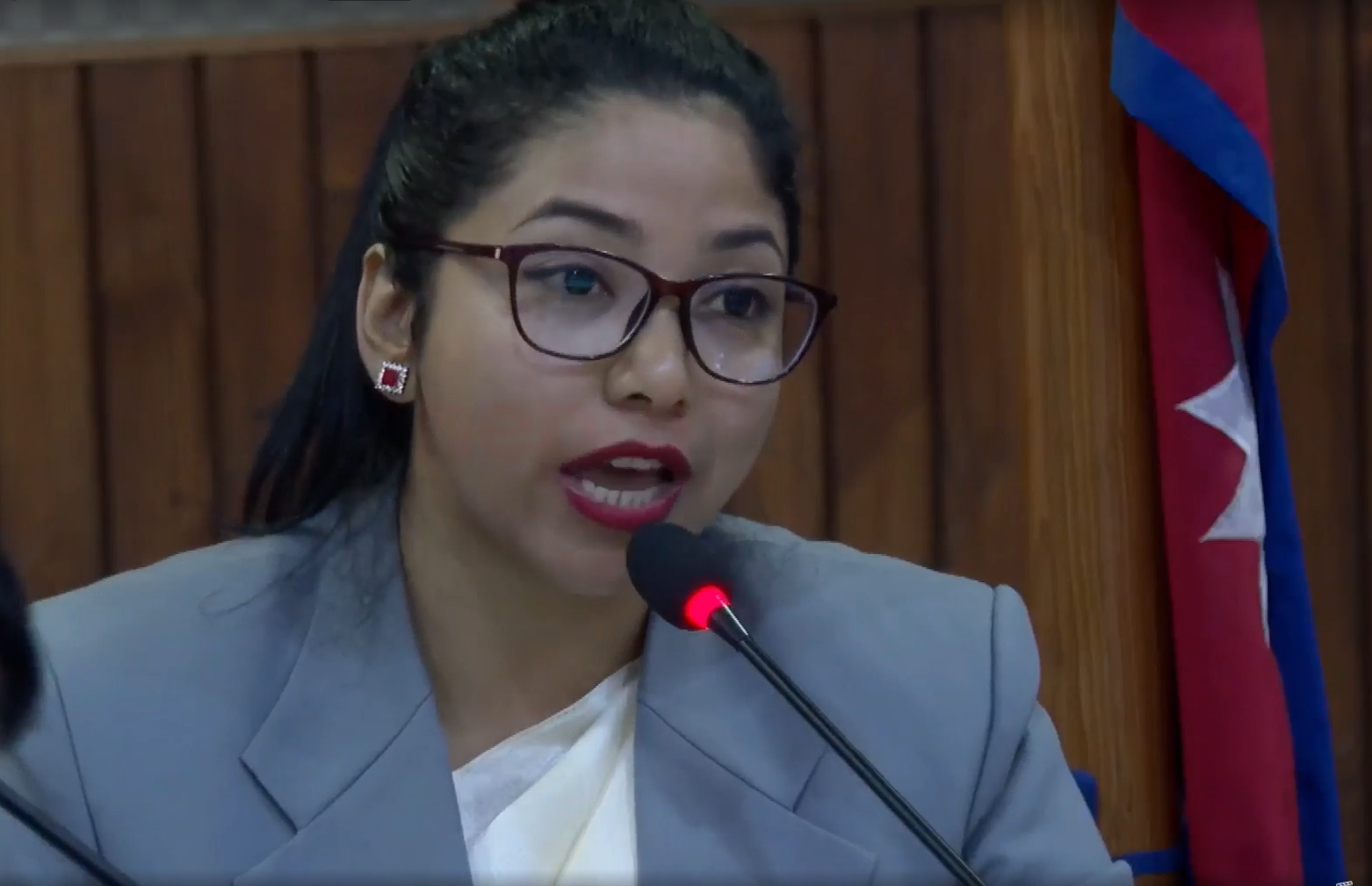A Rotten Potato Spoils the Entire Sack

1. Introduction
The analogy of a rotten potato spoiling the entire sack of potatoes holds not only in the context of agriculture but also in the realm of human relationships and societal harmony. The actions of an individual, whether positive or negative, can have far-reaching consequences that extend beyond their immediate sphere of influence. Just as a dishonest person can disrupt family relationships and disturb the social fabric, a single good person can contribute positively to their family and the larger societal framework. Each individual’s behavior and choices play a crucial role in shaping the interconnected web of human society.
Human society thrives on relationships, whether it be within families, communities, or nations. These relationships form the foundation upon which social, cultural, and economic systems are built. When one person breaks the string of this intricate web, the effects ripple throughout, impacting not only individuals but also the collective well-being of society. The actions of a dishonest person can erode trust, sow discord, and destabilize the harmonious functioning of families and communities. On the other hand, the absence or dismissal of a single good person can create a void, depriving society of their positive contributions and leaving a gap in the social, cultural, or economic system. Individuals must recognize the interconnectedness of their actions and the profound impact they can have on others. By cultivating integrity, empathy, and a sense of responsibility, we can contribute to the strength and resilience of the societal web.
Society as a whole needs to value and uphold principles of honesty, compassion, and justice. By promoting a culture of mutual respect, cooperation, and ethical behavior, we can safeguard against the disruption and dismantling of the social systems that sustain us.
2. Human society is the web of relationships.
Human society is a web of relationships, where the actions of one person can profoundly affect the lives of others and disrupt the delicate balance of societal harmony. Each individual has the power to contribute positively or negatively to this interconnected system. By fostering personal integrity, promoting positive values, and recognizing the profound impact of our actions, we can collectively work towards building a harmonious and resilient society.
Human society is indeed a complex tapestry of interconnectedness, characterized by relationships that encompass harmony, affection, love, and respect. The strength and stability of this societal fabric rely on the interwoven bonds that form a circle of connections among individuals and communities. When a string within this web of relationships breaks, it can have profound consequences that extend far beyond the immediate parties involved. The impact of such a rupture can disrupt the delicate balance and functioning of the social order, leading to social disorder and unrest. Just as a single string breaking in a web weakens its structure, the breakage of a relationship within human society can weaken the overall fabric of interconnectedness. The effects may manifest in various ways, such as strained interpersonal dynamics, diminished trust, conflicts, or even systemic breakdowns.
The consequences of a broken relationship extend beyond the individuals directly involved. It can have a domino effect, affecting the wider network of relationships, including families, communities, and even institutions. The harmony that was once present becomes compromised, and social disorder may arise in its place. Therefore, it becomes crucial for individuals, communities, and societies at large to recognize the value of nurturing and maintaining healthy relationships. Fostering open communication, empathy, understanding, and conflict resolution skills can help strengthen the resilience of the societal web.
In this interconnected web, each individual’s actions and choices play a significant role. By cultivating compassion, respect, and a sense of responsibility towards others, we contribute to the cohesion and well-being of the larger social structure. The preservation of the societal fabric relies on the collective effort of individuals to uphold and nourish the relationships that bind us together. By recognizing the consequences of broken strings and prioritizing the restoration and healing of relationships, we can strive to maintain harmony, prevent social disorder, and foster a more inclusive and thriving society.
3. Human society means interconnectedness, harmony, affection, love, respect, and the circle of connection.
Societal behavior is a sensitive issue that requires careful attention. Human society is a complex web of relationships, and if one string breaks, it can have a ripple effect that ruins the entire web. This is why it is so important to handle societal behavior with care. When we think about human society, we often think about the big things, like governments, institutions, and laws. But these things are only possible because of the small things, like the relationships between individuals. These relationships are what make up the fabric of society, and they are what hold us together.
When one string breaks, it can be for any number of reasons. It could be a personal conflict, a political disagreement, or even something as simple as a misunderstanding. But no matter what the reason, the impact can be far-reaching. A broken relationship can lead to social disorder in several ways. It can create tension and distrust between individuals, which can make it difficult to cooperate and resolve problems. It can also lead to violence, as people may feel that they have nothing to lose by resorting to aggression.
In short, societal behavior is a sensitive issue that needs to be handled with care. We need to be aware of the impact that our actions can have on the relationships that make up our society. If we want to create a world where people can live together in peace and harmony, we need to start by building strong relationships.
Here are some tips for handling societal behavior with care:
- Be respectful of others, even if you disagree with them.
- Be open to listening to other people’s perspectives.
- Be willing to compromise.
- Be willing to forgive.
- Be willing to help others.
To maintain and promote a healthy and harmonious society, it is important to consider:
- Emotional Intelligence: Developing emotional intelligence helps individuals navigate social interactions with sensitivity and understanding. This involves being aware of one’s own emotions, as well as recognizing and empathizing with the emotions of others. Emotional intelligence facilitates better communication, conflict resolution, and the establishment of meaningful connections.
- Social Norms and Values: Recognizing and respecting the social norms and values that govern a particular society is crucial. These norms and values provide a framework for acceptable behavior, promote cohesion, and help prevent conflicts. Being aware of cultural differences and practicing cultural sensitivity fosters inclusivity and avoids misunderstandings.
- Personal Boundaries: Respecting personal boundaries is essential for healthy relationships and societal well-being. It involves recognizing and honoring the physical, emotional, and psychological limits of oneself and others. By establishing and maintaining clear boundaries, individuals can foster mutual respect and prevent the erosion of trust and harmony.
- Conflict Resolution Skills: Developing effective conflict resolution skills is key to handling disagreements and disputes constructively. This includes active listening, seeking compromise, and finding win-win solutions. By addressing conflicts early and respectfully, societal disorder can be prevented, and relationships can be preserved.
- Education and Awareness: Promoting education and awareness about societal issues, human rights, and social responsibilities is vital. Providing opportunities for individuals to learn about diverse perspectives, historical contexts, and social challenges enhances understanding, empathy, and informed decision-making. Education empowers individuals to actively contribute to positive societal change.
- Social Institutions: Strengthening and supporting social institutions such as family, education, government, and community organizations is crucial for maintaining societal harmony. These institutions provide a framework for socialization, support, and governance. Ensuring the functioning and integrity of these institutions helps preserve the interconnectedness and stability of society.
- Continuous Dialogue: Engaging in open and respectful dialogue on societal issues is important for collective problem-solving. Encouraging discussions, debates, and the exchange of ideas allows for diverse perspectives to be heard and considered. Through dialogue, society can address challenges, adapt to changing circumstances, and evolve in a positive direction.
- Empowerment and Inclusion: Promoting empowerment and inclusion of marginalized or underrepresented groups is essential for a just and equitable society. Providing equal opportunities, removing barriers, and amplifying voices that have been historically marginalized fosters social cohesion and prevents the breakdown of the relationship web.
By considering these factors and approaching societal behavior with care, individuals and communities can work towards creating a society that thrives on interconnectedness, harmony, affection, love, and respect, ensuring the well-being of all its members.
4. The major cause of societal problems is individualism only for me, and mine, these wants of my, mine, and me creates the super selfish nature in humans.
This complex scenario of “me or I but no one else” has been debated by many philosophers, sociologists, and psychologists. There is no definitive answer, but I can share some of the possible causes and effects of individualism based on my understanding and what I found in the online literature.
According to Britannica, individualism is a political and social philosophy that emphasizes the moral worth of the individual. It has different meanings and implications in different contexts and cultures. In some cases, individualism can be seen as a positive value that promotes freedom, creativity, and self-expression. In other cases, individualism can be seen as a negative value that leads to selfishness, isolation, and conflict.
In my opinion, the causes of individualism depend on several factors.
- Socio-ecological factors: According to a study by Psychological Science, several socio-ecological factors — including more frequent disasters, less prevalent infectious disease, and less climatic stress in poorer countries — were linked with individualism, but increased socioeconomic development was the strongest predictor of increased individualism over time.
- Cultural influences. The Foundation for Economic Education, states that individualism is deeply rooted in American culture, influenced by the history of exploration, revolution, and independence. Other cultures may have different influences that shape their views on individualism, such as religion, tradition, or collectivism.
- Personal preferences. The Freeman Online states that some people may have a natural tendency to value individualism more than others, based on their personality traits, experiences, or goals.
Some people may prefer to be independent, unique, and self-reliant, while others may prefer to be interdependent, conforming, and cooperative.
4.1. The effects of individualism can have both positive and negative impacts.
- Innovation and diversity: According to the Foundation for Economic Education, individualism can foster innovation and diversity by allowing people to pursue their interests and talents without being constrained by social norms or expectations. Individualism can also encourage tolerance and respect for different opinions and lifestyles.
- Mental health issues: The Medium forum illustrates that individualism can cause serious mental health issues by making people feel lonely, depressed, or anxious. Individualism can also reduce social support and empathy for others who are suffering or in need. Individualism can also increase stress and pressure to succeed or compete with others.
- Political and social conflicts: Britannica’s online version states, individualism can create political and social conflicts by undermining the sense of community and solidarity among people. Individualism can also challenge the authority and legitimacy of governments and institutions that seek to regulate or control people’s behavior. Individualism can also lead to polarization and extremism among different groups or ideologies.
I think, when individuals prioritize their interests over collective well-being, it can contribute to a breakdown of social cohesion and create a sense of selfishness. This “me, mine, and my” mentality can lead to various societal challenges, such as:
- Lack of Empathy: Excessive individualism can diminish empathy towards others, as individuals become primarily focused on their own needs and desires. This can result in a lack of understanding and concern for the well-being of others, leading to a breakdown in social connections and mutual support.
- Erosion of Social Responsibility: When people prioritize their interests over their responsibilities to the broader society, it can weaken the sense of collective responsibility. This can lead to a decline in civic engagement, reduced participation in community initiatives, and a diminished willingness to contribute to the common good.
- Growing Inequality: A hyper-individualistic mindset can perpetuate and exacerbate societal inequalities. When individuals prioritize their success and accumulation of resources without regard for the well-being of others, it can lead to widening economic disparities and marginalization of certain groups within society.
- Fragmented Communities: Excessive individualism can contribute to the fragmentation of communities and a breakdown in social connections. When individuals prioritize their interests without considering the impact on the community as a whole, it can erode the sense of shared identity, cooperation, and collaboration that are vital for a cohesive society.
- Weakened Social Support Systems: Excessive individualism can strain social support systems. When individuals prioritize their own needs and neglect collective efforts to support vulnerable members of society, it can lead to inadequate social safety nets, limited access to resources, and reduced support for those in need.
In my opinion, addressing the challenges arising from excessive individualism requires a shift towards a more balanced approach that recognizes the importance of both individual rights and collective well-being. This includes fostering a sense of shared responsibility, promoting empathy and compassion, and nurturing a culture of cooperation and collaboration. Encouraging individuals to consider the broader impact of their actions and choices can contribute to a more harmonious and inclusive society.
Conclusion
I argue that recognizing the harmful effects of immoral behavior is crucial for mitigating its destructive influence. Efforts to foster open communication, promote empathy, and encourage individual accountability can help repair and strengthen the family system. By addressing ill motives, lack of morality, and blame-shifting tendencies, families can work towards restoring harmony, rebuilding trust, and fostering a supportive and nurturing environment.An ill-minded individual who constantly blames others and lacks moral values not only disrupts their family system but also inflicts damage upon the entire family structure. Understanding the impact of such behavior and taking proactive steps to address it are essential for preserving the well-being and cohesiveness of the family unit.
It is evident that excessive individualism, driven by a self-centered mindset, can have detrimental effects on society as a whole. The metaphorical analogy of a rotten potato spoiling the entire sack aptly captures the impact of ill-minded individuals on the social fabric. When individuals prioritize their wants and needs without considering their collective well-being, it creates a culture of selfishness that undermines the interconnectedness, harmony, and respect necessary for a thriving society.The super selfish nature that stems from an excessive focus on “me, my, and mine” can erode empathy, diminish social responsibility, perpetuate inequality, fragment communities, and weaken social support systems. Recognizing and addressing this issue is crucial for tackling the societal problems that arise from it.
To counteract the negative consequences of excessive individualism, it is essential to promote a more balanced approach that values both individual rights and the common good. This involves fostering empathy, compassion, and a sense of shared responsibility. It requires encouraging individuals to consider the broader impact of their actions and choices, nurturing a culture of cooperation and collaboration, and strengthening social support systems to ensure the well-being of all members of society. By addressing the mechanism of ill-minded individuals and their impact on social destruction, we can work towards creating a society that values interconnectedness, harmony, affection, love, and respect. It is through collective efforts and a commitment to the greater good that we can overcome the challenges posed by excessive individualism and build a more compassionate and inclusive world.
Finally, I urge each of us to evaluate within and beyond the existence of immoral mote and self-reflection and awareness to prevent the presence of a “rotten potato” or a “rotten onion type” personality within ourselves and our surroundings. Each individual needs to take proactive measures and be vigilant in recognizing any negative traits or behaviors that may harm both the family and social systems. By observing ourselves and being introspective, we can identify any tendencies towards selfishness, blame-shifting, or lack of moral values that could potentially impact our relationships and the broader community. It is crucial to address these issues at their early stages, taking preliminary precautions and seeking appropriate treatment or personal development. Engaging in self-improvement practices, such as cultivating empathy, fostering a sense of responsibility, and practicing open communication, can contribute to a healthier and more harmonious family and social system. By acknowledging and addressing any negative traits within us, we can actively work towards personal growth and positive transformation. Individuals need to be mindful of their actions and attitudes, as well as their impact on the family and social systems. By taking proactive measures, such as self-reflection, early precautions, and necessary treatments, we can contribute to the prevention of detrimental influences and foster a more positive and supportive environment for all.
Thank you!
Facebook Comment
latest Video
Trending News
- This Week
- This Month

















